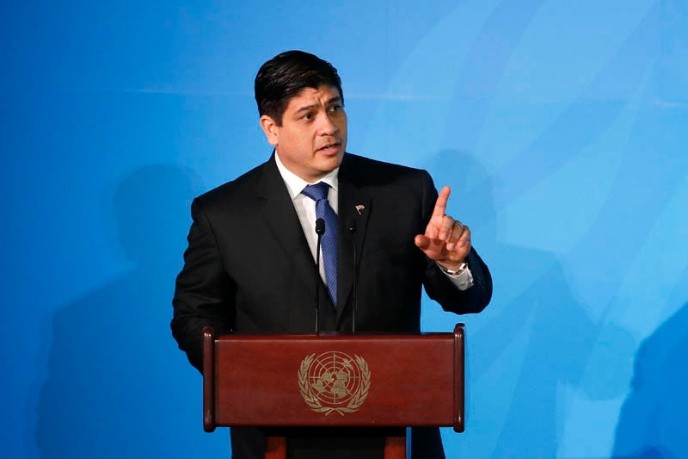RIO DE JANEIRO, BRAZIL – The president of Costa Rica, Carlos Alvarado, signed this Friday, May 10, the law of accession of his country to the Organization for Economic Cooperation and Development (OECD), which he described as “a transcendental step” and an “extraordinary lesson”.
“This is an extraordinary lesson, a lesson of a country in the midst of a pandemic,” said Alvarado after highlighting that the country concluded this process based on agreements between various political parties and the momentum throughout three governments.

Alvarado said that the OECD accession process has already generated benefits for Costa Rica, such as an updated anti-bribery law, modern corporate governance regulations, tax reform, and educational improvement mechanisms, among other issues that were part of the improvements demanded by the international organization.
“Joining the OECD has a huge impact for the people because it improves the state apparatus in pursuit of a better life and prosperity,” said the president, who stressed that from now on, Costa Rica has “a lot of work to do” in moving towards best practices in various areas promoted by the organization.
“Costa Rica is one of the 20 strongest democracies in the world, it is one of the five countries in the world with the greatest freedom of the press, and today we are among the 38 with the best practices in the world,” he said, referring to the group of countries that make up the OECD.
The signing of the accession statute comes after Congress approved the law in a vote of 40 in favor and 3 against last Monday.
The last step for Costa Rica to join the OECD is for it to deposit the instrument with the authorities in France, the organization’s headquarters.
In May 2020, Costa Rica received the formal invitation to join the OECD after going through an accession process that required the endorsement of 22 OECD committees in various economic, social, and political areas.
At that stage, the organization’s committees issued recommendations for Costa Rica to establish an agenda of legal reforms and public policies that the State has been implementing in recent years.
Costa Rica will be the 38th member of the OECD and the fourth in Latin America after Chile, Mexico, and Colombia.
The process of Costa Rica’s accession to the international organization began in the government of Laura Chinchilla (2010-2014), continued in the government of Luis Guillermo Solís (2014-2018), and now ends in the government of Carlos Alvarado (2018-2022).

